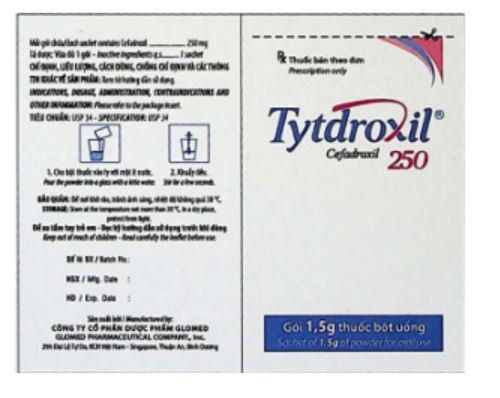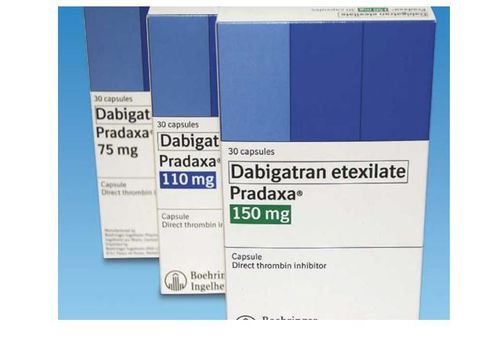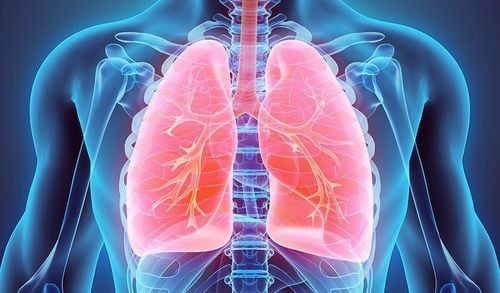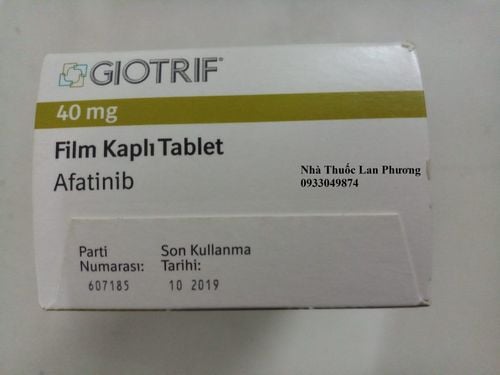This is an automatically translated article.
The article was professionally consulted by Specialist Doctor I Nguyen Hong Phuc - Emergency Department - Vinmec Phu Quoc International General Hospital. The doctor has many years of experience in the treatment of respiratory medicine.Early recognition of pleurisy symptoms and timely intervention will help patients improve treatment effectiveness and limit the risk of dangerous complications caused by pleurisy.
1. What is pleurisy?
Anatomically, the pleura is a thin membrane consisting of 2 layers (an inner lining of the chest wall and a layer that covers the lungs). Between the two layers is the pleural cavity, which contains a little fluid to help the lungs and chest wall move smoothly when breathing. Pleurisy is a condition in which the membrane surrounding the lungs becomes inflamed and causes sharp pain in the chest with a rapid frequency for the patient. The pain often increases when the patient takes a deep breath or coughs, causing the already inflamed pleura to rub against each other.Based on pleurisy symptoms and causes, pleurisy is classified into 2 types as primary pleurisy and secondary pleurisy.
Primary pleurisy: To put it simply, primary pleurisy is inflammation that starts in the tissue of the pleura itself caused by an infection or injury; Secondary pleurisy: An inflammation of the pleura caused by the lung itself or another disease in the chest such as pneumonia or a tumor.
2. Causes of pleurisy
Some objective and subjective causes can cause pleurisy including:2.1 Due to viral infection of the patient Viral infection is assessed as the main cause of pleurisy. Patients infected with the virus will cause reactions in part of the pleura and cause pain.
Viral pleurisy will not be severe and usually has symptoms such as cough, fever, cold, flu in the patient... After a few days, the immune system will destroy the virus and the condition of the illness. will be relieved.
2.2 Other causes In addition, the patient may also have pleurisy due to a number of other causes such as:
Lung cancer; Pleurisy in some forms of arthritis; Pneumonia; Pulmonary embolism ; Chest trauma; Pneumothorax. If the cause is not a virus but is caused by the above diseases, the patient will not only have symptoms of pleurisy but also a number of other symptoms.
Pleurisy is quite common nowadays. In order to cope with this disease, in addition to learning about the causes of the disease, the patient should also watch out for risk factors (such as age, ...) and complications of pleurisy (such as bronchitis). chronic, diabetes, emphysema, cardiovascular...).
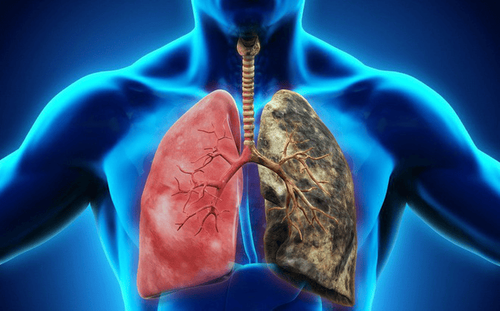
3. Early symptoms of pleurisy
Some symptoms of pleurisy are warned quite early in the patient, including:The patient has fever, chills, cold; Often feel pain, tightness in the chest when breathing; Persistent dry cough; Every time you breathe, you can hear a wheezing, heavy sound; Feels like a heavy chest pulls down; Patients are pale, tired, lack of vitality; Tired body; Tingling in the chest when coughing, sneezing, and taking deep breaths. Although pleurisy is quite common, it is not likely to endanger the life of the patient if it is treated promptly. Therefore, if the patient has chest pain with the following signs, they should quickly go to the hospital for examination
Pain does not decrease or disappear after a few days; Pain develops slowly from days to weeks; Hemoptisi; Rapid or difficult breathing.
4. Is pleurisy contagious?
Whether pleurisy is contagious is a question that many people care about. Explaining this problem, medical experts said that pleurisy is a typical form of pneumonia, the main cause of the disease is usually a virus, bacteria, fungus or parasite. Therefore, people with pleurisy are very likely to transmit the pathogen to those around them, through the saliva splashed when talking or coughing or sneezing.To limit the spread of pleurisy from one person to another, people who are not sick should avoid close contact with sick people in a face-to-face manner.
5. Is pleurisy dangerous?
Patients with pleurisy, if subjective, left untreated for a long time or have improper treatment methods, can lead to extremely dangerous complications such as:Bursting into the lungs; Bronchi cause lung abscess – purulent; Leaking chest wall; Secondary or mixed pneumothorax; Pericardial effusion; Septicemia ...
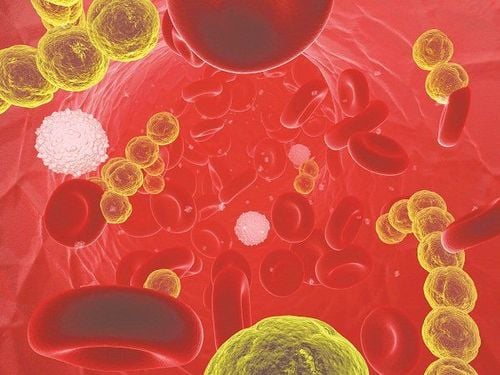
In particular, lung cancer screening is the most effective measure for you to detect and promptly treat lung cancer, to protect your health and life. Currently, Vinmec International General Hospital has a Lung Cancer Screening Package with many outstanding advantages such as:
A team of highly qualified and experienced doctors. Comprehensive professional cooperation with domestic and international hospitals: Singapore, Japan, USA, etc. Comprehensive treatment and care for patients, multi-specialty coordination towards individualizing each patient. Having a full range of specialized facilities to diagnose the disease and stage it before treatment: Endoscopy, CT scan, PET-CT scan, MRI, histopathological diagnosis, gene-cell testing, .. Full range of main cancer treatment methods: surgery, radiation therapy, chemotherapy, stem cell transplant... When registering for the Lung Cancer Screening Package at Vinmec, customers will receive:
Examination respiratory specialist Low-dose computed tomography lung cancer screening
Please dial HOTLINE for more information or register for an appointment HERE. Download MyVinmec app to make appointments faster and to manage your bookings easily.






